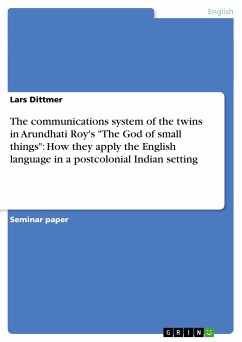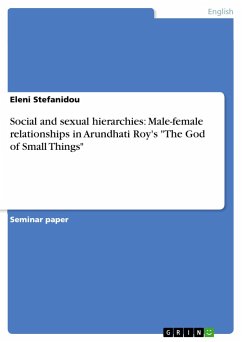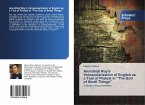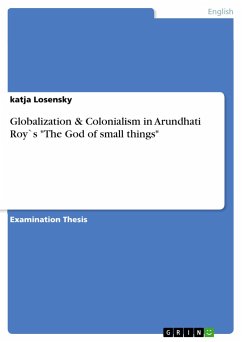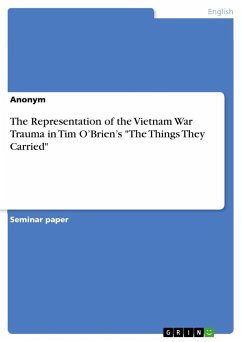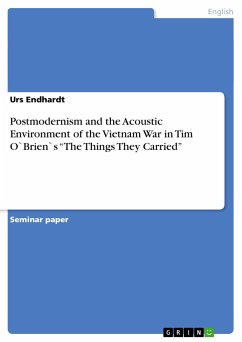Seminar paper from the year 2005 in the subject American Studies - Literature, grade: 1,3, University of Potsdam (Philosophisches Institut), course: Proseminar: Poetics, Politics and and Power in Contemporary American and Postcolonial Literature, language: English, abstract: Chacko told the twins that though they hated to admit it, they were all Anglophiles. They were a family of Anglophiles.(Roy 1996: 52)In establishing the two-egg twins Rahel and Esthapen (Estha) as main characters in her 1996 masterpiece "The God of Small Things", Arundhati Roy has set up postcolonial prototypes in the area of conflict between British and Indian identity and culture. The body of the story focuses on the childhood of the twins, playing in the late 1960s; they are born to an upper middle class family in Kerala, South-Western India, and grow up fatherless. Their family to a large extent cultivates a British attitude - mainly due to grandfather Pappachi alias John Ipe, an Entomologist and former government official under the British colonial administration, his sister Baby Kochamma, and his son Chacko, who used to be an Oxford Rhodes Scholar. Until his death in the first part of the book, John Ipe drives a big Plymouth, he wears stiff English suits and it is inconceivable to him that any Englishman could misbehave; Chacko assumes the air of a British intellectual, he almost exclusively speaks English and often indulges in citing from English and American classics. The family has a high reputation in their home town Ayemenem, most members of the family profit from their Anglophile air in one way or other. The rest of the family more or less adapts to their way of life or finds a way to deal with the situation.The plot of the novel is balanced along cultural and social areas of friction within the Indian society, such as caste, class, religion, culture, clout, customs and traditions. It is one of the main tasks for the characters in the novel to find their place in this complex social structure. Though the twins are educated in English, their situation is particularly difficult and they receive some degree of alienation also from within the family. Of course, the twins mostly do not articulate these sorts of feelings and assessments explicitly; it has to be considered that they are children of the age of seven - but they are given a much more subtle means of communication by the author: language. Not the content of their sentences, but the way they apply the English language in various situations. It conveys a lot about how they assess their position and how they engage themselves in certain situations the novel fronts.
Bitte wählen Sie Ihr Anliegen aus.
Rechnungen
Retourenschein anfordern
Bestellstatus
Storno

